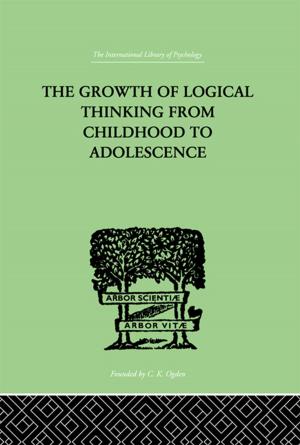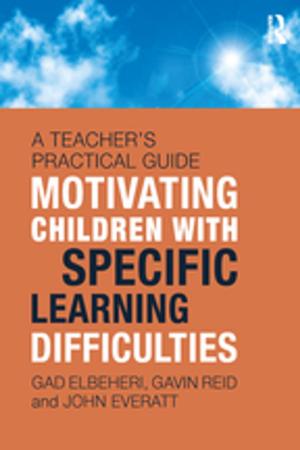Music Therapy with Adults with Learning Disabilities
Nonfiction, Health & Well Being, Psychology, Creative Ability, Counselling, Mental Health| Author: | ISBN: | 9781134181964 | |
| Publisher: | Taylor and Francis | Publication: | May 7, 2007 |
| Imprint: | Routledge | Language: | English |
| Author: | |
| ISBN: | 9781134181964 |
| Publisher: | Taylor and Francis |
| Publication: | May 7, 2007 |
| Imprint: | Routledge |
| Language: | English |
Music Therapy with Adults with Learning Disabilities explores how music therapists work in partnership with people with learning disabilities to encourage independence and empowerment and to address a wide variety of everyday issues and difficulties.
Comprehensive and wide-ranging, this book describes in detail the role and work of the music therapist with adults with learning disabilities. Many clinical examples are used, including casework with people with autism, asperger’s syndrome, profound and multiple learning disabilities and a dual diagnosis of learning disability and mental health problems. The book also explores issues of team work and collaborative working, considering how music therapists and their colleagues can best work together. The chapters are grouped into four sections; an introduction to current music therapy work and policy in the area, clinical work with individuals, clinical work with groups, and collaborative and team work. Guidelines for good practice are also provided.
This is a thought-provoking and topical text for all those involved in work with adults with learning disabilities; it is essential reading for music therapists and fellow professionals, carers, policy makers and students.
Music Therapy with Adults with Learning Disabilities explores how music therapists work in partnership with people with learning disabilities to encourage independence and empowerment and to address a wide variety of everyday issues and difficulties.
Comprehensive and wide-ranging, this book describes in detail the role and work of the music therapist with adults with learning disabilities. Many clinical examples are used, including casework with people with autism, asperger’s syndrome, profound and multiple learning disabilities and a dual diagnosis of learning disability and mental health problems. The book also explores issues of team work and collaborative working, considering how music therapists and their colleagues can best work together. The chapters are grouped into four sections; an introduction to current music therapy work and policy in the area, clinical work with individuals, clinical work with groups, and collaborative and team work. Guidelines for good practice are also provided.
This is a thought-provoking and topical text for all those involved in work with adults with learning disabilities; it is essential reading for music therapists and fellow professionals, carers, policy makers and students.















